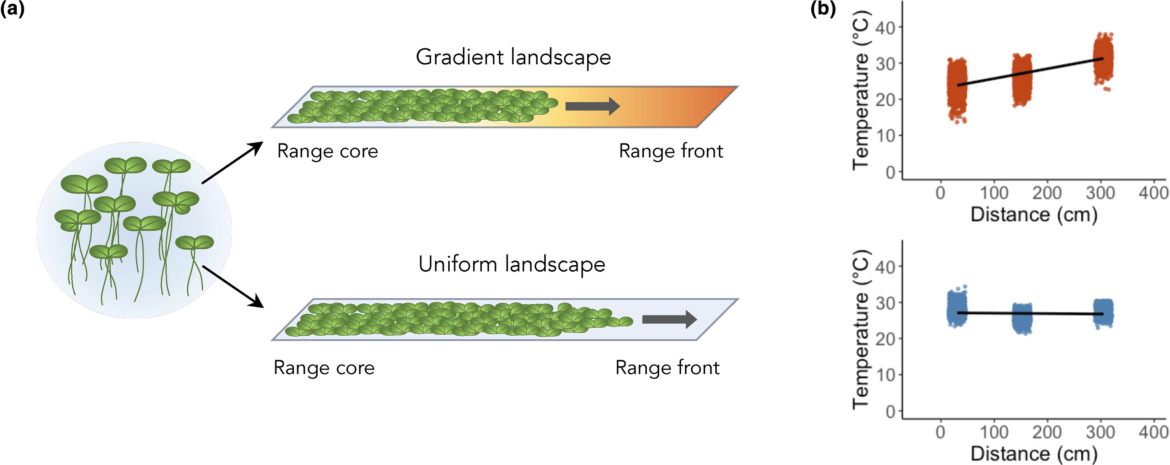
FIGURE 1. Experimental range expansion across landscapes with and without a spatial gradient in temperature. (a) Replicate, mixed-genotype populations of duckweed (Lemna species complex) expand their experimental ranges across increasingly warmer temperatures (blue to red) from the range core to the range front in gradient landscapes, or across benign and constant temperatures in uniform landscapes. (b) Observed temperatures across gradient (red) and uniform (blue) landscapes during the experiment. Lines represent the slopes of linear models of temperature by distance from range core. We found a significant and positive temperature slope in gradient landscapes (Bgradient= 0.027, 95% CI: 0.027 to 0.028°C/cm; t = 126.49; p < 0.001) and a slightly negative slope in uniform landscapes (Buniform= −0.001, 95% CI: −0.002 to 0.000°C/cm; t = 68.50; p < 0.01).
Takuji Usui, Amy L. Angert. 2024. Range expansion is both slower and more variable with rapid evolution across a spatial gradient in temperature. Ecology Letters
Abstract
Rapid evolution in colonising populations can alter our ability to predict future range expansions. Recent theory suggests that the dynamics of replicate range expansions are less variable, and hence more predictable, with increased selection at the expanding range front. Here, we test whether selection from environmental gradients across space produces more consistent range expansion speeds, using the experimental evolution of replicate duckweed populations colonising landscapes with and without a temperature gradient. We found that the range expansion across a temperature gradient was slower on average, with range-front populations displaying higher population densities, and genetic signatures and trait changes consistent with directional selection. Despite this, we found that with a spatial gradient range expansion speed became more variable and less consistent among replicates over time. Our results therefore challenge current theory, highlighting that chance can still shape the genetic response to selection to influence our ability to predict range expansion speeds.